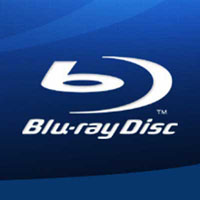 Spam is still a problem, but its becoming increasingly centralized — which could make its eradication that much more easier if those battling it play their cards right. Research firm MessageLabs reported Monday that 83.2 percent of all spam originates from Botnets.
Spam is still a problem, but its becoming increasingly centralized — which could make its eradication that much more easier if those battling it play their cards right. Research firm MessageLabs reported Monday that 83.2 percent of all spam originates from Botnets.
To refresh your memory, a botnet is a group of computers running distributed software to perform tasks such as sending spam or distributing malware. Using botnets for spam could be blamed for the marked increase in spam itself: it now accounts for over 90 percent of all e-mail.
These systems not only send mail directly, but have also figured out ways to spam through webmail services, which end up making the messages look more legitimate.
MessageLabs has put a list together of the biggest spammers, and found the biggest target is “Cutwail,” which contributes 45% of all spam. Shutting down a network like that would obviously diminish considerably the amount of spam being sent out.
Indeed, this network was affected by a shutdown of its ISP, but was able to bounce back within hours. The firm says this shows spammers are also becoming more sophisticated in building these networks, ensuring they have backup systems to keep it running.
Other statistics found as part of the study indicated that one out of every 269 emails contained a virus in June. Likewise, one in 280 emails contained a phishing attack.

 For many of us the bullying we experienced in school happened on the schoolyard: however, today’s kids have to also deal with those same bullies making their life hell online as well. A study sponsored by AT&T indicates education on how to deal with these situations goes a long way in prevention, though.
For many of us the bullying we experienced in school happened on the schoolyard: however, today’s kids have to also deal with those same bullies making their life hell online as well. A study sponsored by AT&T indicates education on how to deal with these situations goes a long way in prevention, though. Microsoft has officially put the kibosh on any effort to get the company to ditch the Word rendering engine for HTML based e-mails in Outlook 2010. Over 20,000 twitterers have taken up a call by
Microsoft has officially put the kibosh on any effort to get the company to ditch the Word rendering engine for HTML based e-mails in Outlook 2010. Over 20,000 twitterers have taken up a call by  You have to give the Bing faithful some credit. These folks are a persevering bunch and despite indications that it’s
You have to give the Bing faithful some credit. These folks are a persevering bunch and despite indications that it’s  Polling
Polling  AT&T is trying to make the case for exclusive deals for phones, saying they “stimulate” innovation. Yes, you heard that right: by sticking it to the consumer and forcing them to a certain carrier, we’re enjoying innovative products. I’m not exactly following this, and neither is Capitol Hill either.
AT&T is trying to make the case for exclusive deals for phones, saying they “stimulate” innovation. Yes, you heard that right: by sticking it to the consumer and forcing them to a certain carrier, we’re enjoying innovative products. I’m not exactly following this, and neither is Capitol Hill either. XP is like that houseguest you can never get to leave. Microsoft is now giving computer manufacturers up to 18 months — or until April 2011 — to offer “downgrade” options from Windows 7 for customers. The concession by Redmond is a victory for companies who had been pushing for the extension to minimize the pain of upgrading to the newest operating system.
XP is like that houseguest you can never get to leave. Microsoft is now giving computer manufacturers up to 18 months — or until April 2011 — to offer “downgrade” options from Windows 7 for customers. The concession by Redmond is a victory for companies who had been pushing for the extension to minimize the pain of upgrading to the newest operating system.